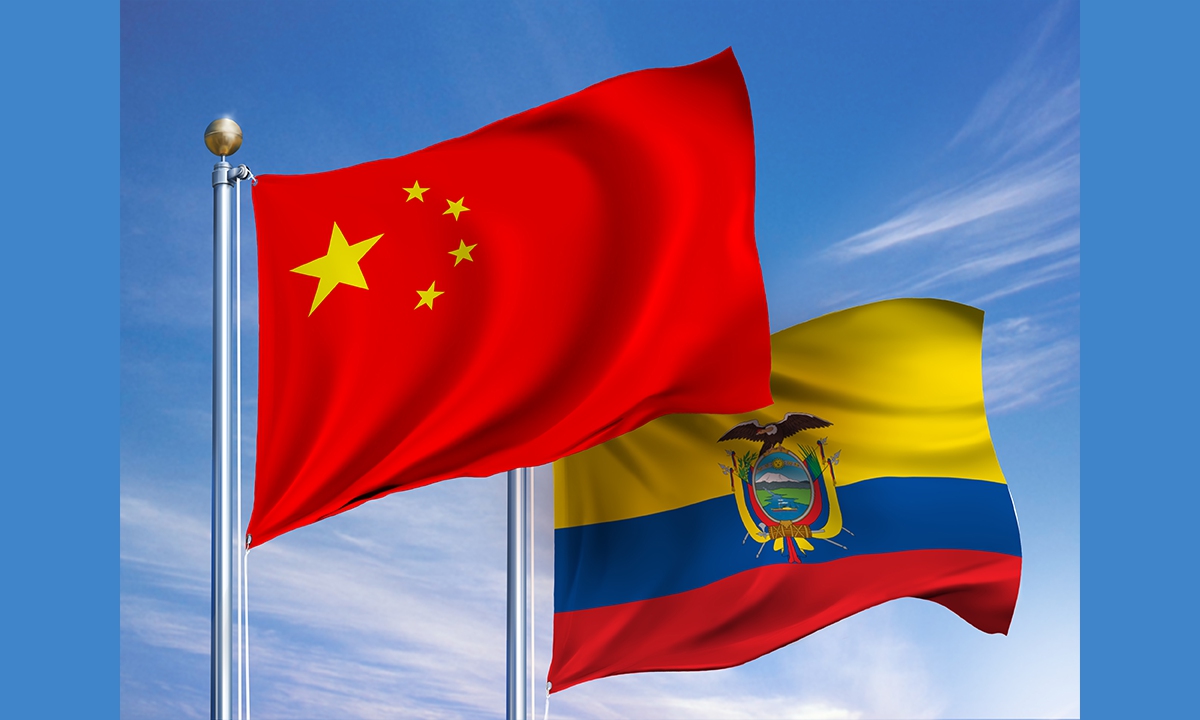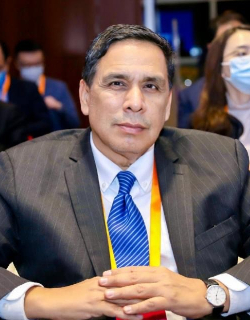
China Ecuador Photo: VCG
Héctor Villagran-Cepeda, Ecuador's former Minister of Transport and Public Works, told the Global told the Times. Exclusive interview on Sunday.
The comments came amid rising protectionism by Western countries led by the US against China's new energy products, with the new energy vehicle (NEV) sector being the main target over claims of so-called overcapacity. .
Despite objections from third parties, Villagrancepeda said relations and cooperation between China and Latin America “will remain unaffected due to the strong will and determination of the common region.”

Hector Villagran-Cepeda, former Ecuadorian Minister of Transport and Public Works Photo: Provided by Héctor Villagran-Cepeda
Mr. Villagrancepeda praised the cost-effectiveness of China's new energy sector and called for stronger cooperation between China and Latin American countries in this field.
The possibility of cooperation between China and Latin America is a major step towards world peace and understanding, he said.
“For the past 500 years, our region has continued to explore the path of scientific development. China's development policy is a hope for industrial development and a way to start a knowledge-based economy in this region. '' he said.
“The time has come to deepen mutually beneficial relations for both China, with its high-tech development, and Latin America, with its rich natural resources, on the important issue of environmental protection,” Villagran-Cepeda added.
Furthermore, as Villagran Cepeda pointed out, Latin America is an important source of natural resources needed to develop new energy products using Chinese technology.
He highly praised China's NEV sector for its cost-effectiveness, industrial transformation, and contribution to regional carbon reduction.
of [industrial and green] Latin America's transformation was to adopt China's low energy consumption methods many years ago, and in addition to fuel savings, the transformation benefited passenger and cargo transportation with lower unit costs and lower pollution, Villa said. Grancepeda said.
Villagran-Cepeda said that cooperation with China in the region's green transformation is necessary for future development due to various factors such as reducing pollution, reducing costs and upgrading industries.
He pointed out the need for technical cooperation. “There is a lot of demand in Latin America because people trust Chinese technology,” he said.
According to Villagran Cepeda, green transformation has additional value as it supports the industrial transformation that Latin America is trying to achieve.
Chinese companies are building many factories not only in Ecuador but also in Latin America, he said, creating jobs, developing industrial capacity and transferring technology in the process.
Villagrancepeda said that apart from NEVs, there are many other green products that offer opportunities for cooperation between China and Latin American countries, such as solar power, wind power and hydropower, which have achieved great success in the region. It is said that it is contained.
In recent years, NEVs, lithium batteries and photovoltaic products have become new business cards demonstrating China's manufacturing industry's transition to high-end, intelligent and green development.
This transformation has not only contributed to China's green transformation, but also has implications around the world, including in Latin American countries, which are increasingly important markets for China's NEV exports.
Villagran Cepeda said that Latin America has great opportunities in the green sector and that Latin America is open to Chinese technologies and products.
With the China-Ecuador Free Trade Agreement just taking effect on May 1, Ecuador is gaining momentum in its green transformation while helping Chinese companies expand globally.




